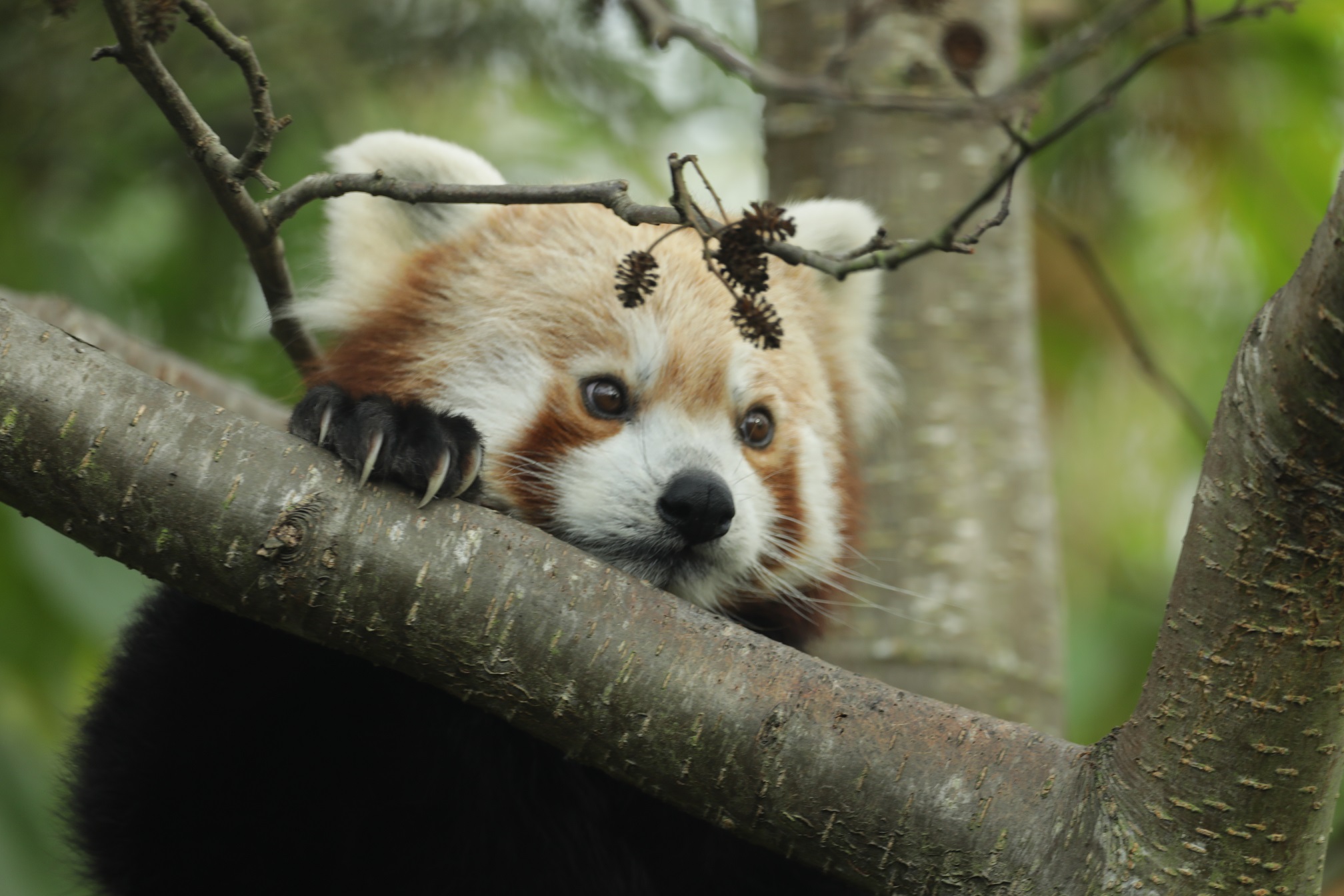Red squirrel recovery – a local success story
Posted 14 Apr 2025

Red squirrels are undoubtedly one of the UK’s most iconic and beloved species, being firmly linked in our collective consciousness to our remaining wild spaces. Despite this, there are many people throughout the country who have never seen a red squirrel due to the catastrophic declines they have suffered since non-native grey squirrels were introduced to the UK, beginning in the 1890s. Red squirrels are currently listed as an endangered species in the UK and without conservation action are at risk of being driven to extinction. Around 80% of the UK’s remaining red squirrels are found in Scotland where the continued spread of grey squirrels remains a threat. As part of RZSS’s mission to reverse the decline of 50 species by 2030, and in particular to help save an iconic British species, we have been supporting the essential conservation work carried out by Saving Scotland’s Red Squirrels (SSRS).
Collaboration for successful conservation
Wildlife conservation is a hugely collaborative endeavour, bringing together the skill and experience of conservation researchers and field-based practitioners and volunteers, as well as requiring the buy-in and support of local communities and stakeholders. The conservation work carried out by SSRS in Northeast Scotland is a prime example of this.
Since 2009, SSRS has been hard at work to reduce the abundance of grey squirrels in and around Aberdeen, which became established in the region in the 1970s with devastating effects on the local red squirrel population. The action to reduce grey squirrels has proven to be highly successful, with red squirrels returning throughout the city and countryside in response.
The role of the public
Support and contributions from members of the public have been crucial to the ongoing success of this conservation programme, including the reporting of grey squirrel sightings (see our post on red squirrel awareness week!), which has enabled SSRS to better understand population dynamics of grey squirrels in Aberdeen and adapt their action accordingly. The public have also had a crucial role in hosting grey squirrel traps managed by SSRS and more recently transitioning to hosting monitoring stations, with hundreds of individuals also signing up to be part of the surveillance team and reporting sightings on the SSRS website.
The role of conservation research
Over the last year RZSS WildGenes has been carrying out genetic analyses which provide SSRS with further insights on the Aberdeen grey squirrel population. Using DNA extracted from tissue samples gathered by SSRS, we were able to develop a genetic test that can determine the sex of grey squirrels. In addition, we were able to locate a number of genomic regions called SNPs (pronounced “snips”) which vary between individuals. This variation results in individual squirrels having a unique SNP profile – a genetic fingerprint – which can be used for identification.
The ultimate goal is for SSRS to be able to apply both of these tests to hair samples that grey squirrels leave behind when visiting feeders. This will enable better modelling of the remaining grey squirrel population in Aberdeen, as modelling solely based on sightings doesn’t provide an easy way to distinguish between different individuals and can miss more cautious squirrels that actively avoid humans. This improved understanding will allow SSRS to more effectively target their efforts and resources, with the complete removal of grey squirrels from the region now in sight!
We all have a part to play
I hope this helps to illustrate the scale and complexity of wildlife conservation programmes, the success of which often relies upon the collaboration of a diverse range of partners. If you’re keen to see red squirrels why not head up to Highland Wildlife Park where they are frequent and bold visitors to the wooded areas throughout the site, with their antics always being a delight to watch!
Sam Mitchell
RZSS WildGenes research assistant

